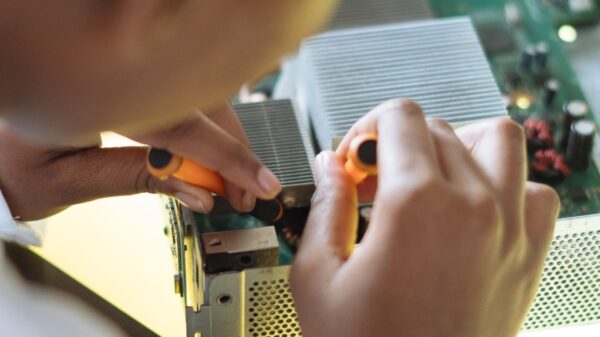According to Scientific American, scientists have successfully trained artificial intelligence to read MRI brain scans and interpret what you’re thinking. Two Japanese scientists, Yu Takagi and Shinji Nishimoto used generative AI to “translate” participants’ brain scans into pictures. Life becomes more like science fiction every day because “mind-reading” AI is now a thing.
“Mind reading” AI turns MRI scans into pictures of what you’re thinking.
To be clear, Takagi and Nishimoto have not developed some sort of robot that can instantly know your every thought. The researchers used a magnetic resonance imaging (MRI) machine to scan test subjects’ brains while presenting them with images.
They then used Stable Diffusion AI to detect patterns in the scans and recreate the images presented to the participants. And, though the recreations weren’t perfect, the artificial intelligence consistently interpreted the brain scans into recognizable images.
Additionally, scientists had to train each artificial intelligence model on participants’ brain scans individually. After which, the AI can only “read” that one person’s mind. And it’s unclear if Takagi and Nishimoto’s method can recreate images that subjects simply imagined rather than physically see.
Who does this benefit?
The practical applications of this AI model generation are limited. However, it serves as a solid base for future medical breakthroughs. “I don’t think the technology is anywhere near to actually being useful for patients,” said computational neuroscientist Shailee Jain. Who was not involved in the experiment. “But we are getting better, day by day.”
With further advancements, eventually, doctors could potentially use the technology to understand patients incapable of communication better. For example, patients with advanced Parkinson’s disease who cannot control their bodies but are still conscious. However, those days are still a long way away.
Scientists at the University of Texas at Austin are working on similar artificial intelligence models.
NPR reports scientists at UT Austin developed an MRI-reading AI that reconstructs brain patterns into words. “It’s getting at the ideas behind the words, the semantics, the meaning,” said the study’s author, Alexander Huth.
Unlike Nishimoto and Takagi’s image reconstruction, Huth’s take on “mind-reading” AI interprets MRI scans into more abstract thought. This version is able to “decode more freeform thought,” according to Carnegie Mellon University professor of psychology Marcel Just. Who was not involved in the experiment.
Takagi and Nishimoto’s experiment could revolutionize communication with patients incapable of doing so, but Huth’s take has further applications. For example, it could help interpret how the human brain processes mental illness.
There are ethical concerns about such invasive medical technologies.
Though the potential medical benefits of “mind-reading” AI are incredible, scientists have raised ethical concerns with both experiments. “I think the time to think about privacy and negative uses of this technology is now,” said Jain. “Even though we may not be at the stage where that could happen.”
And, though Huth is the author of the AI word-string study, even he agrees that there are legitimate concerns about its nefarious uses. “This is very exciting, but it’s also a little scary,” said Huth. “What if you can read out the word that somebody is just thinking in their head? That’s potentially a harmful thing.”



























